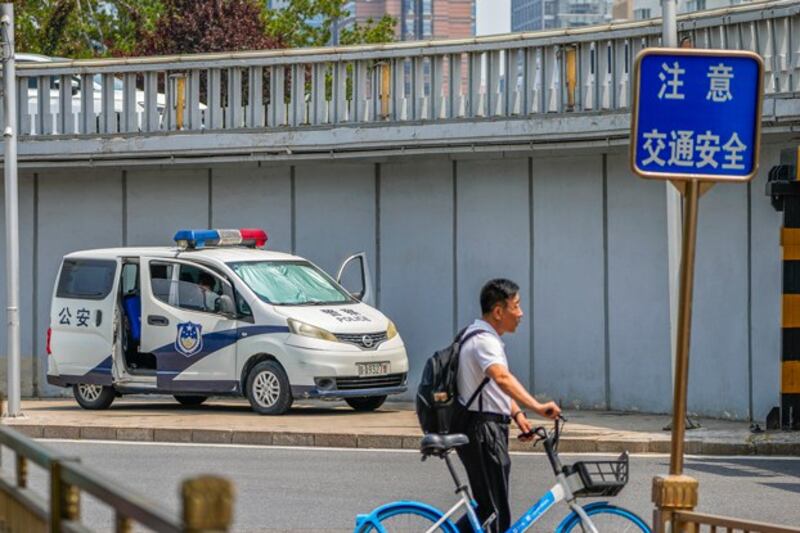Authorities across China are allowing dissidents forcibly taken out of town ahead of the 35th anniversary of the Tiananmen Square massacre to return to their homes earlier than expected due to security budget cuts, activists told RFA Mandarin.
The majority of dissidents taken out of Beijing ahead of Tuesday's anniversary of the bloodshed had already returned by Wednesday evening due to reduced funding for " stability maintenance" operations, a Beijing-based dissident who declined to be named for fear of reprisals said.
The Chinese authorities control public dissent through pervasive surveillance, a " grid" system of law enforcement at the neighborhood level and a targeted " stability maintenance" system aimed at controlling critics of the government before they take action.
But cash-strapped local governments have seen funding for preemptive security measures slashed in recent years, from a nationwide allocation of 549 billion yuan in 2010 to just 227.6 billion yuan in 2024.
"Anyone taken out to the suburbs will be back in Beijing on June 5, and on June 6 only if there are special circumstances," the dissident said, citing "unified regulations" issued by the municipal government's "stability maintenance" operation.
"Special circumstances" apply to high-profile political journalist Gao Yu, who will return on Thursday, while less prominent activists like Zha Jianguo will all return home by the end of Wednesday, the dissident said.
Funding shortfall
Overall, the "stability maintenance" period for the anniversary was shortened by the Beijing municipal authorities this year to just seven days, compared with 10 days in previous years, the dissident said.
"They have no money this year, and the police have had their salaries cut," the dissident said. "They must have reduced the stability maintenance budget."
Rights activists and dissidents in Hunan, Hubei, Jiangsu and Shandong provinces, among other places, have told RFA Mandarin they were warned to stay at home and banned from giving media interviews in the run-up to the politically sensitive anniversary on June 4.

Yet the funding shortfall appears to be nationwide, according to a Hunan dissident who asked not to be identified for fear of reprisals.
"The police aren't coming out [to escort us places or check up on us] now," the dissident said, adding that police appear to have dropped many of the security measures they used in previous years. "They're short of staff and can't afford to pay security guards."
A resident of the central province of Hubei who gave only the surname Ge for fear of reprisals said the financial responsibility for stability maintenance operations has now been devolved to local neighborhood and residents' committees, who were given law-enforcement powers in July 2021.
"Part of the neighborhood committee budget has to be used for stability maintenance," Ge said. "In short, stability maintenance funding is now in disarray."
Police controls
Ge said the nationwide stability maintenance operation was once masterminded by the ruling Chinese Communist Party's former security czar Zhou Yongkang, who was jailed for corruption amid to topple Xi Jinping in 2015.
"When Zhou Yongkang was in office, the [ruling party's] Central Political and Legal Affairs Commission allocated funding for stability maintenance, but now that it has been devolved to the neighborhood committee, we're not getting a penny," he said.
While police controls over the relatives of massacre victims and over access to Tiananmen Square remained tight on Tuesday's anniversary, the authorities in many locations have had to make do with just telling dissidents not to post anything online about the 1989 Tiananmen Square massacre, and not to talk to the media.
A resident of the eastern province of Jiangxi who gave only the surname Deng said he had been warned off posting photos of lit candles to mark the anniversary, but that some photos had made it onto social media anyway, suggesting they had appeared in large enough numbers to evade censors.
"Turns out machine deletion plus manual censorship of posts has its limitations," Deng said.
Translated by Luisetta Mudie . Edited by Roseanne Gerin.
